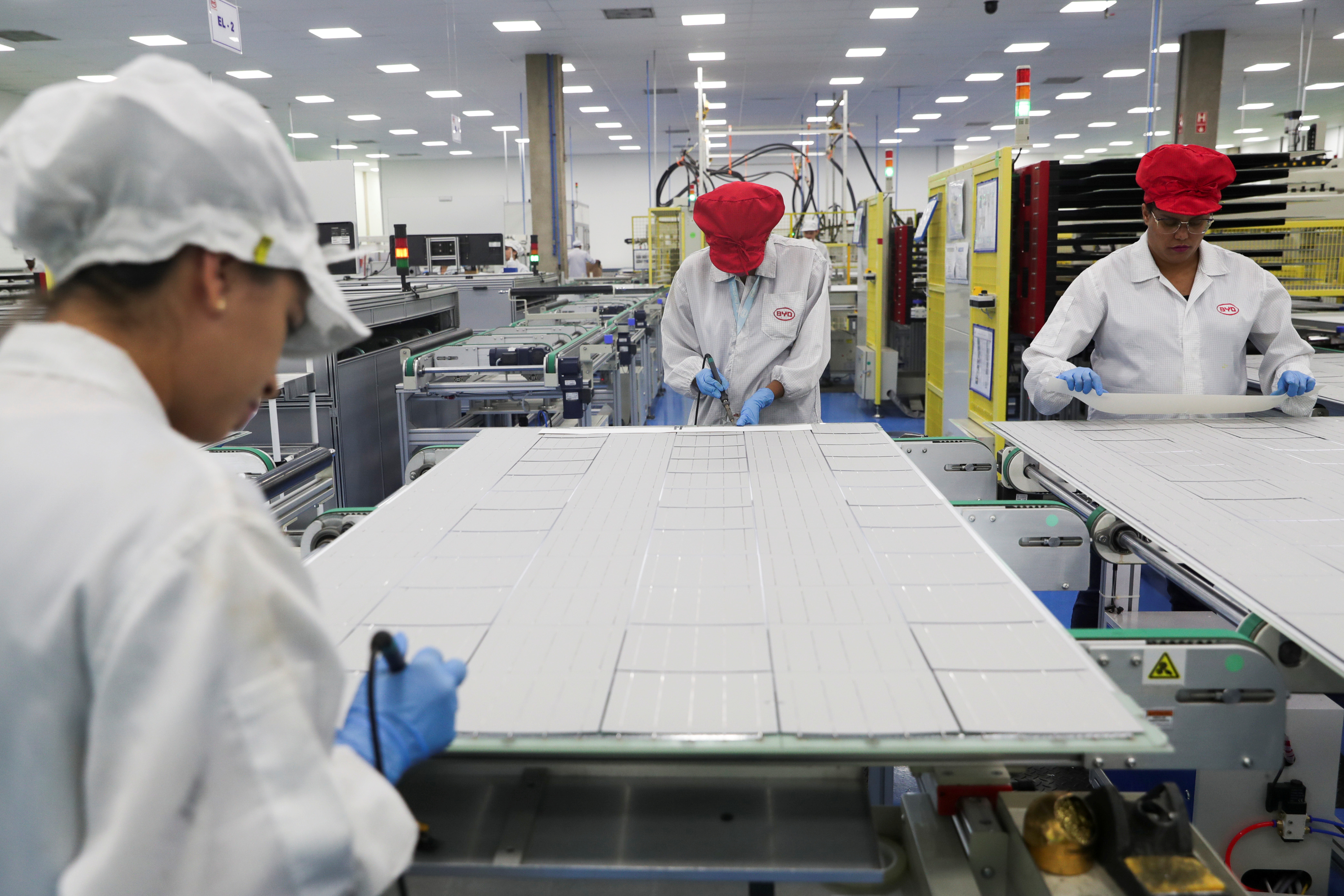
Countries must lessen their dependence on China’s production of solar panels and dramatically boost manufacturing capacity to reach net-zero emissions, the International Energy Agency has said.
In a report released on Thursday, the IEA said that while China’s policies and innovation have made solar power more affordable, its domination of the sector has also resulted in “imbalances” in supply chains.
“China has been instrumental in bringing down costs worldwide for solar photovoltaics (PV), with multiple benefits for clean energy transitions,” IEA Executive Director Fatih Birol said.
“At the same time, the level of geographical concentration in global supply chains also poses potential challenges that governments need to address. Accelerating clean energy transitions around the world will put further strain on these supply chains to meet growing demand, but this also offers opportunities for other countries and regions to help diversify production and make it more resilient.”
The world will need to quadruple the pace at which solar capacity is increasing by 2030 in order to reach net-zero emissions by 2050, the IEA said.
Global production capacity for critical components such as polysilicon, ingots, wafers, cells and modules will also need to more than double by 2030 to meet the target, the intergovernmental organisation said.
Economic benefits
Ramping up global capacity would also bring about economic benefits, the report said, with new manufacturing facilities potentially attracting $120bn of investment and doubling the industry workforce to one million people by 2030.
“As countries accelerate their efforts to reduce emissions, they need to ensure that their transition towards a sustainable energy system is built on secure foundations,” Birol said. “Solar PV’s global supply chains will need to be scaled up in a way that ensures they are resilient, affordable and sustainable.”
China’s domination of supply chains for solar panels has come under scrutiny in some countries amid allegations of human rights abuses and trade violations.
In the United States, Congress has highlighted polysilicon produced in Xinjiang as a priority for enforcement under the recently enacted Uyghur Forced Labor Prevention Act, which compels importers to prove that goods made in the autonomous region do not involve forced labour.
The US Department of Commerce is also investigating whether Chinese manufacturers are evading duties by channelling components through countries in Southeast Asia.







